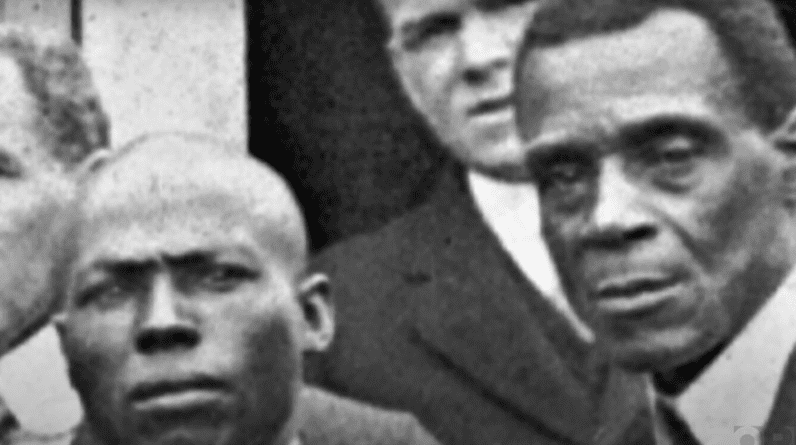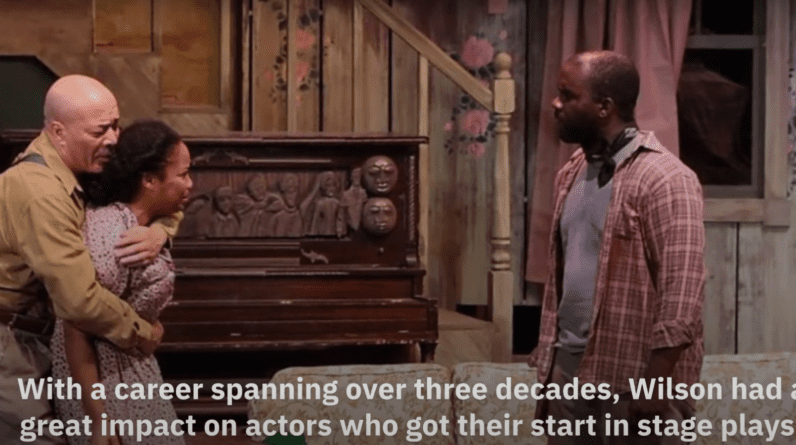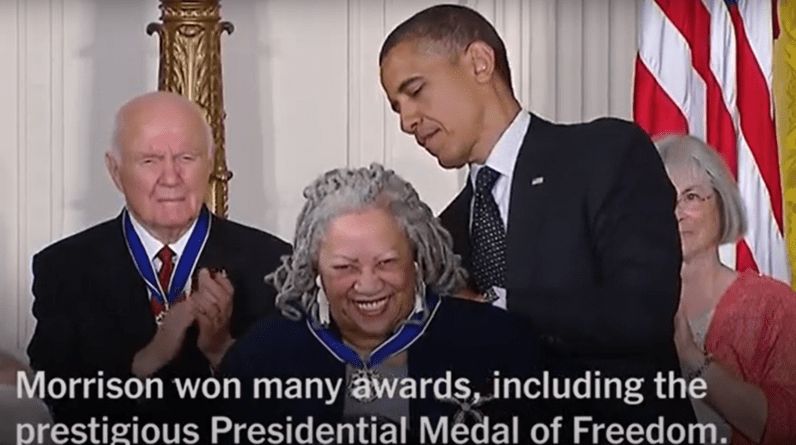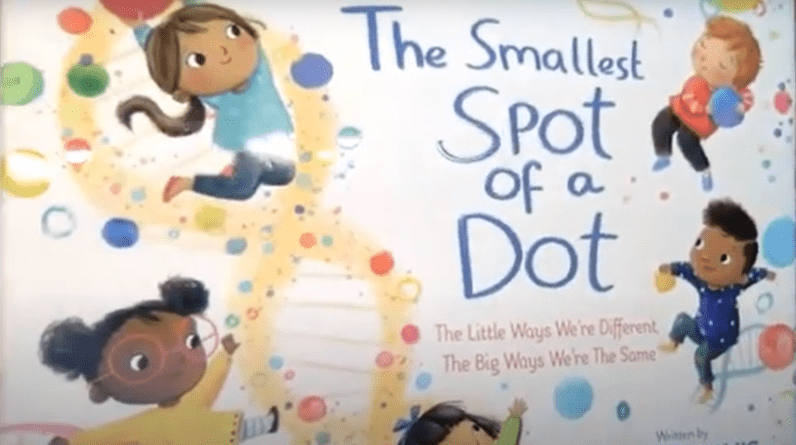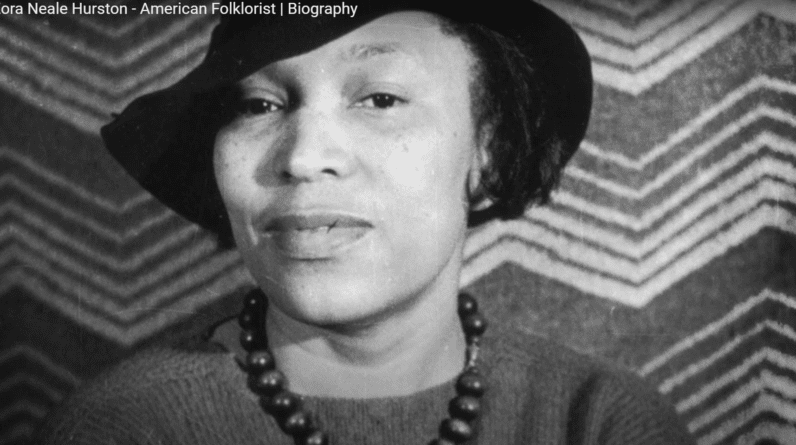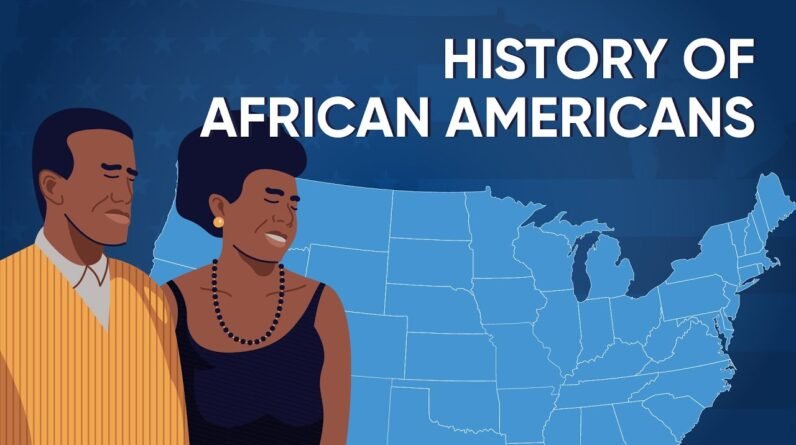
African American Race on American Society
African American Race on American Society. Are you curious about the profound influence of African American race on American society? This article aims to shed light on the remarkable impact African Americans have had throughout history. From the civil rights movement to cultural contributions in music, art, literature, and sports, the African American community has left an indelible mark on American society. By exploring the achievements and challenges faced by African Americans, this article seeks to inspire a deeper appreciation for their significant role in shaping the diverse and dynamic fabric of America. So, come along on this enlightening journey as we examine the transformative influence of the African American race.

Civil Rights Movement
Key Figures
The Civil Rights Movement in the United States was a pivotal moment in history that fought for equal rights and opportunities for African Americans. Numerous individuals played significant roles in this movement, advocating for justice and equality. Key figures include Martin Luther King Jr., a prominent civil rights leader known for his powerful speeches and nonviolent protest methods. Rosa Parks, often referred to as the “Mother of the Civil Rights Movement,” made a courageous stand by refusing to give up her bus seat to a white passenger. Other notable figures include Malcolm X, Ella Baker, and Medgar Evers, who all made tremendous contributions to the fight for civil rights.
Important Events
Throughout the Civil Rights Movement, various events marked significant milestones in the battle for equality. The Montgomery Bus Boycott, ignited by Rosa Parks’ refusal to comply with segregated seating, lasted for 381 days and resulted in a Supreme Court ruling declaring segregation on buses unconstitutional. The March on Washington in 1963 saw Martin Luther King Jr. deliver his famous “I Have a Dream” speech, inspiring millions and raising national awareness of racial inequality. The Selma to Montgomery marches in 1965 symbolized the fight for African American voting rights and led to the passage of the Voting Rights Act. These events, among many others, shaped the narrative of the Civil Rights Movement and propelled the progress toward equality.
Legislation and Policies
Legislation and policies played a crucial role in the advancement of civil rights for African Americans. The Civil Rights Act of 1964 was a landmark law that outlawed discrimination based on race, color, religion, sex, or national origin. This legislation effectively ended segregation in public places and prohibited employment discrimination. The Voting Rights Act of 1965 aimed to overcome the barriers preventing African Americans from exercising their right to vote, such as literacy tests and poll taxes. These laws, alongside the Fair Housing Act of 1968, which prohibited housing discrimination, marked significant strides in dismantling systemic racism and enshrining equal rights in the United States.
Impact on African American Empowerment
The Civil Rights Movement had a profound impact on the empowerment of African Americans. By challenging segregation and discriminatory practices, the movement paved the way for increased opportunities and equal treatment. African Americans gained greater access to education, employment, and political representation. The movement created a sense of unity and pride within the African American community, fostering a stronger sense of identity and collective purpose. The fight for civil rights brought about long-lasting social and cultural changes, challenging deep-rooted prejudices and inspiring generations to continue advocating for equality and justice.
Contributions to Arts and Culture
Literature
African American literature has played a crucial role in shaping American literature as a whole. From the works of Frederick Douglass, who chronicled his experiences as an enslaved person and advocated for abolition, to the poetry of Langston Hughes, who eloquently captured the African American experience during the Harlem Renaissance, African American authors have enriched the literary world with their unique perspectives and voices. Toni Morrison’s novels, exploring themes of race, gender, and identity, earned her the Nobel Prize in Literature. Contemporary writers like Ta-Nehisi Coates and Jesmyn Ward continue to contribute to the rich tapestry of African American literature, providing powerful narratives that shed light on the ongoing struggle for racial equality.
Music
African American musicians have made immense contributions to various genres of music, shaping American culture and influencing artists worldwide. The blues, developed by African Americans in the early 20th century, expresses the hardships and joys of life in the face of adversity. Legendary artists like B.B. King, Muddy Waters, and Etta James brought the blues to mainstream audiences and paved the way for the emergence of rock and roll. Jazz, birthed in African American communities, became a symbol of cultural expression and freedom. Figures such as Louis Armstrong, Duke Ellington, and Ella Fitzgerald revolutionized the genre and continue to inspire generations of musicians. The impact of African American musicians can also be seen in the rise of hip-hop, a genre rooted in the African American experience that has become a global cultural phenomenon.
Visual Arts
African American artists have made significant contributions to the visual arts, challenging stereotypes and redefining artistic expression. During the Harlem Renaissance, artists like Jacob Lawrence and Aaron Douglas depicted African American life and culture in vibrant and powerful ways. The work of Romare Bearden, known for his collages exploring African American narratives, continues to be celebrated for its innovative approach. Contemporary artists like Kara Walker and Kehinde Wiley push boundaries and address pressing social issues through their thought-provoking artwork. African American artists have played a vital role in expanding the art world’s understanding of identity, history, and representation.
Film and Television
In the realm of film and television, African Americans have made significant strides both in front of and behind the camera. Depictions of African Americans in media have evolved from harmful stereotypes to more diverse and authentic portrayals. Trailblazing actors and actresses such as Sidney Poitier, Hattie McDaniel, and Halle Berry have broken barriers and paved the way for increased representation. Filmmakers like Spike Lee and Ava DuVernay tell stories that explore the complexities of race, identity, and social issues. The success of movies like “Black Panther,” directed by Ryan Coogler, has shown the industry the power of diverse storytelling and the demand for inclusive narratives. African Americans in the film and television industry continue to shape the landscape of entertainment, opening doors for future generations and reshaping societal perceptions.

This image is property of images.unsplash.com.
Sports and Athletics
Breakthrough Athletes
African American athletes have made remarkable strides in the world of sports, overcoming adversity and breaking down barriers. Jackie Robinson, the first African American to play Major League Baseball, defied racial segregation and opened doors for future generations of athletes. The trailblazing accomplishments of athletes like Jesse Owens, who won four gold medals at the 1936 Olympics, and Wilma Rudolph, an Olympic sprinter, challenged racial stereotypes and inspired African Americans across the nation. Tennis player Arthur Ashe’s triumphs both on and off the court, including his advocacy for civil rights and his efforts to combat HIV/AIDS, further exemplify the impact of African American athletes beyond their athletic achievements.
Popular Sports
African Americans have excelled in a wide range of sports, leaving an indelible mark on American athletic culture. Basketball, in particular, has seen influential African American players rise to prominence, dominating the sport at both collegiate and professional levels. Legends such as Michael Jordan, Magic Johnson, and LeBron James have not only achieved athletic greatness but also used their platforms to advocate for social justice and uplift their communities. African American athletes have also made significant contributions to football, track and field, boxing, and other sports, continuously pushing the boundaries of excellence and inspiring future generations.
Olympic Achievements
African American athletes have achieved remarkable success in the Olympics, using the global platform to shatter racial barriers and promote equality. Jesse Owens’ historic performance at the 1936 Berlin Olympics undermined Adolf Hitler’s belief in Aryan superiority. Owens’ four gold medals demonstrated that talent and determination transcend racial prejudice. The accomplishments of athletes like Tommie Smith and John Carlos, who raised their fists in a Black Power salute during the medal ceremony at the 1968 Olympics, brought attention to the ongoing struggle for civil rights in America. African American athletes continue to excel in various Olympic events, highlighting the diversity and inclusivity of the Games.
Sports as a Catalyst for Change
Sports have often served as a catalyst for social change, providing platforms for athletes to advocate for equality and justice. The activism of African American athletes, from Muhammad Ali’s refusal to be drafted for the Vietnam War to Colin Kaepernick’s protests against police brutality, has raised awareness about pressing social issues. Their actions amplified the voices of marginalized communities and sparked national conversations about race, privilege, and systemic injustice. By using their platforms to advocate for change, African American athletes have not only left a lasting impact on the sports world but also on society as a whole.
Demographic Changes
Migration and Urbanization
The African American population has witnessed significant demographic changes over the centuries, driven in part by migration and urbanization. The Great Migration, which spanned from the early 20th century to the 1970s, saw millions of African Americans move from the rural South to the urban North and West in search of better opportunities and to escape systemic racism. This mass movement led to the growth of vibrant African American communities in cities such as Chicago, Detroit, and New York. The migration also sparked cultural and intellectual renewal, giving rise to the Harlem Renaissance and other artistic and literary movements.
Population Growth and Distribution
The African American population has steadily grown since the abolition of slavery, though it has been shaped by various historical factors. The significant decline in African American population during the years of slavery gave way to a gradual increase following emancipation. The migration patterns of the Great Migration contributed to larger African American populations in urban areas. Today, African Americans make up approximately 13% of the total U.S. population, with the highest concentrations found in southern states like Mississippi, Louisiana, and Georgia.
Role in U.S. Politics
African Americans have played a crucial role in U.S. politics, fighting for representation and influencing policy at local, state, and national levels. The civil rights movement provided a platform for African Americans to demand equal political and civic participation. This resulted in an increase in African American elected officials, from city council members to U.S. senators and representatives. Prominent figures such as Shirley Chisholm and Barack Obama shattered barriers by becoming the first African American congresswoman and the first African American president, respectively. The participation of African Americans in politics has been instrumental in advancing legislation and policies that address racial inequality and promote social justice.
Challenges and Opportunities
The African American community continues to face both challenges and opportunities related to demographics. Despite progress, systemic racism and socioeconomic disparities persist, hindering full equality and opportunity. African American communities often face higher rates of poverty, limited access to quality education and healthcare, and disproportionate involvement in the criminal justice system. However, ongoing efforts to address these challenges and create equitable opportunities offer hope for a brighter future. Community organizations, advocacy groups, and grassroots movements work tirelessly to address systemic inequalities and create pathways for economic and social empowerment.
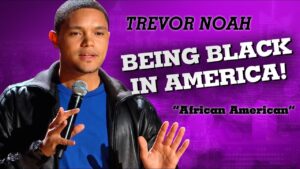
Education and Intellectual Achievements
Historical Struggles for Education
Access to education has been a pivotal aspect of the African American struggle for equality and empowerment. During slavery, it was illegal for enslaved individuals to learn to read and write, denying them the opportunity to pursue formal education. After emancipation, African Americans fought for equal educational opportunities, often facing segregation and unequal resources. Landmark cases such as Brown v. Board of Education in 1954 declared segregation in public schools unconstitutional, opening the doors for African American students to receive quality education alongside their white counterparts. The fight for educational equality remains an ongoing endeavor.
Prominent African American Scholars
Throughout history, African American scholars have made significant contributions to various fields of study. W.E.B. Du Bois, an influential sociologist, author, and civil rights activist, challenged prevailing notions of race and conducted groundbreaking research on African American communities. Booker T. Washington, an educator and advisor to presidents, emphasized vocational training as a means of economic advancement for African Americans. Figures like Maya Angelou, James Baldwin, and Angela Davis have advanced the realms of literature, social sciences, and activism, respectively, shedding light on issues affecting African American communities and inspiring intellectual discourse.
Higher Education and Professional Fields
African Americans have made remarkable strides in higher education and professional fields, reclaiming spaces once denied to them. Historically Black Colleges and Universities (HBCUs) have played a pivotal role in providing education to African American students, nurturing future generations of leaders, scholars, and professionals. The desegregation of universities and affirmative action policies have increased African American enrollment and representation in higher education. African Americans have excelled in various professional fields, including law, medicine, and business, breaking barriers and challenging stereotypes. The achievements of individuals like Thurgood Marshall, the first African American Supreme Court Justice, and Mae Jemison, the first African American woman astronaut, exemplify the impact of African American excellence in professional arenas.
Effects on Society
The advancement of education and intellectual achievements among African Americans has had far-reaching effects on society. Increased access to education has empowered African American individuals and communities, providing them with the knowledge and skills to effect positive change. The rise of African American scholars and intellectuals has challenged societal perceptions, dismantled stereotypes, and contributed to the broader understanding of race, history, and culture. Intellectual achievements have also fostered critical thinking, social awareness, and a sense of self-worth within the African American community, leading to greater engagement and contributions to various facets of society.
Health Disparities and Activism
Disproportionate Health Outcomes
African Americans have long faced disproportionate health outcomes due to systemic inequalities and social determinants of health. Factors such as limited access to healthcare, higher rates of poverty, environmental racism, and racial bias contribute to disparities in health outcomes. African Americans experience higher rates of chronic diseases, including hypertension, diabetes, and certain cancers. Maternal and infant mortality rates are also significantly higher within the community. These health disparities highlight the need for targeted interventions, advocacy, and healthcare policy reform to achieve health equity for African Americans.
Community Health Organizations
Community health organizations have played a vital role in addressing health disparities and promoting wellness within African American communities. These organizations work to provide culturally competent care, improve access to healthcare services, and educate community members about preventative health measures. They play a crucial role in facilitating community engagement and empowering individuals to advocate for their health needs. By addressing the unique challenges and needs of African American communities, these organizations contribute to reducing health disparities and promoting overall well-being.
Medical Research and Advocacy
Medical research and advocacy have been instrumental in shedding light on health disparities affecting African Americans and driving positive change. Studies examining the impact of systemic racism on health outcomes and disparities have helped shape policies and interventions aimed at reducing these inequalities. Advocacy groups and healthcare professionals actively work to raise awareness of health disparities, influence healthcare policy, and promote equitable access to quality care. The engagement of African American communities in research and advocacy efforts ensures that interventions and approaches are rooted in community needs and priorities.
Efforts for Health Equity
Efforts to achieve health equity for African Americans require a multi-faceted approach involving community engagement, policy change, and systemic interventions. Addressing the social determinants of health, such as education, housing, and employment, is essential to improving health outcomes. Expanding access to affordable, quality healthcare through initiatives like Medicaid expansion and community health centers can also make a significant impact. Additionally, diversifying the healthcare workforce and promoting cultural competency can improve the delivery of care and reduce racial biases. Combating health disparities requires ongoing commitment, collaboration, and a comprehensive approach that recognizes the unique challenges faced by African American communities.
Business and Entrepreneurship
African American Business Leaders
African American entrepreneurs and business leaders have made significant contributions to the economic landscape of the United States. Figures such as Madam C.J. Walker, who became the first female self-made millionaire in America through her hair care products for African American women, pioneered opportunities for economic empowerment. Robert L. Johnson, the founder of BET (Black Entertainment Television), revolutionized the media industry by creating a platform that catered to the African American audience. Today, African American business leaders like Ursula Burns and Kenneth Chenault continue to shatter glass ceilings and inspire future generations of entrepreneurs.
Economic Challenges and Opportunities
African Americans have long faced economic challenges rooted in systemic racism and socioeconomic disparities. Limited access to capital, discriminatory lending practices, and unequal business opportunities have presented obstacles for African American entrepreneurs. However, despite these challenges, African American-owned businesses have thrived and played a significant role in economic growth. The surge in black-owned businesses over the years has created opportunities for wealth accumulation, job creation, and community development. Initiatives promoting access to funding, business mentorship, and equitable resources can further empower African American entrepreneurs and mitigate economic disparities.
Small Business Ownership
Small business ownership has been a powerful vehicle for economic empowerment within the African American community. African American-owned small businesses contribute to job creation, stimulate local economies, and provide goods and services tailored to the needs of their communities. From neighborhood storefronts to online ventures, African American entrepreneurs have built thriving enterprises across various industries. The support and promotion of small business ownership offer opportunities for economic self-sufficiency, wealth generation, and community reinvestment.
Economic Impact
The economic impact of African American entrepreneurship and business ownership is far-reaching. African American entrepreneurs contribute to economic growth, foster innovation, and build wealth within their communities. As small business owners, they create employment opportunities, narrow the wealth gap, and provide goods and services that meet the needs of African American consumers. The economic success of African American entrepreneurs also challenges stereotypes and provides tangible examples of African American excellence and resilience. A thriving small business sector is vital for fostering economic equality and uplifting African American communities.
Religion and Spirituality
Influence of African American Churches
African American churches have long been at the center of African American spirituality, community building, and empowerment. Rooted in slavery, African American churches provided refuge, spiritual nourishment, and a sense of hope during times of oppression. The Black Church served as a space where African Americans could gather, worship, and organize social and political movements. With a strong emphasis on social justice and liberation theology, African American churches have been instrumental in advocating for civil rights and addressing systemic inequalities. The influence of these churches extends beyond the spiritual realm, reaching into various aspects of African American culture and identity.
Historical Importance
The historical importance of African American churches is deeply intertwined with the African American experience in America. Slavery-era gatherings in secret or “invisible” churches allowed enslaved individuals to practice their faith despite oppressive conditions. The establishment of independent Black Churches following the Emancipation Proclamation provided African Americans with autonomy and agency in matters of faith and worship. The role of African American churches in the civil rights movement, particularly during the Montgomery Bus Boycott and the March on Washington, further solidified their significance as catalysts for social change.
Role in Community Building
African American churches have played a pivotal role in community building, fostering a sense of belonging and strengthening social ties within African American communities. They serve as community centers where individuals can find support, share resources, and participate in social, educational, and charitable programs. Churches often provide critical services, including food banks, counseling, educational enrichment, and youth programs. Beyond their religious functions, African American churches continue to be key institutions that promote community development, empowerment, and social cohesion.
Spiritual Resilience
The spiritual resilience fostered within African American churches has served as a source of strength, hope, and perseverance throughout history. In the face of adversity and systemic oppression, African Americans have turned to their faith as a means of endurance and resistance. Spirituals, hymns, and gospel music have provided solace, expressed collective identity, and encoded messages of liberation. The spiritual resilience cultivated within African American churches has sustained generations through hardships, and it continues to shape the African American community’s ability to overcome obstacles and create positive change.
Political Participation and Leadership
Electoral Representation
African Americans have made significant progress in political participation and representation, breaking barriers and reshaping the political landscape. The Voting Rights Act of 1965 and subsequent legislation removed many of the discriminatory barriers that prevented African Americans from exercising their right to vote. This led to increased African American voter registration and representation at all levels of government. African American politicians, such as Shirley Chisholm, who became the first African American woman elected to Congress, and Barack Obama, who became the first African American president of the United States, have shattered racial and gender barriers, inspiring future generations of leaders.
Civil Rights Advocacy
The Civil Rights Movement served as a catalyst for African American political advocacy and activism. The movement mobilized African Americans to demand equal rights, prompting increased political engagement and shaping the trajectory of American politics. Grassroots organizations, such as the Southern Christian Leadership Conference (SCLC) and the Student Nonviolent Coordinating Committee (SNCC), played pivotal roles in organizing protests, marches, and voter registration drives. Civil rights advocacy continues to be a driving force behind African American political engagement, championing issues such as criminal justice reform, voting rights, education, and economic equality.
Leadership in Government
African Americans have assumed leadership positions in various branches of government, contributing to policy-making, legislation, and public service. From local mayors and city council members to state governors and members of Congress, African American leaders have worked to address racial disparities, promote inclusivity, and advocate for marginalized communities. The appointment of African Americans to key government positions, such as Eric Holder as Attorney General and Kamala Harris as Vice President, exemplifies the growing influence and impact of African American leadership in shaping national policies and driving social change.
Social and Political Movements
African American political participation extends beyond electoral representation to the active engagement in social and political movements. African Americans have been at the forefront of campaigns and movements advocating for equal rights and social justice. From the civil rights movement to the Black Lives Matter movement, African Americans have fought against racial discrimination, police brutality, and systemic inequalities. Grassroots activism, protests, and social media campaigns have elevated African American voices and raised awareness of systemic injustice, inspiring collective action and fostering societal change.
Social and Cultural Impact
Identity and Pride
The African American experience has shaped the social and cultural fabric of America, fostering a rich and diverse identity. African Americans have forged a sense of pride and resilience in the face of centuries of oppression and marginalization. The cultural contributions of African Americans, from music and literature to fashion and language, have indelibly shaped American popular culture. Through the celebration of Black History Month, cultural festivals, and vibrant artistic expressions, African Americans have asserted their place and significance within American society, reaffirming their contributions and enriching the nation’s cultural tapestry.
Representation in Media
Representation in media has been a critical avenue for African Americans to challenge stereotypes, increase visibility, and shape narratives. African American actors, filmmakers, and storytellers have worked tirelessly to push for diverse and authentic portrayals in film, television, and other media outlets. The demand for increased representation has led to a broader range of roles and stories that reflect the African American experience. Shows like “The Cosby Show” and “Black-ish” have presented nuanced portrayals of African American families, while films like “Moonlight” and “Hidden Figures” have celebrated the complexities and achievements of African American individuals. Increased representation not only provides African Americans with a platform to share their stories but also promotes inclusivity and understanding across racial and cultural divides.
Social Movements and Activism
African Americans have been at the forefront of numerous social movements and activism efforts throughout history, advocating for justice, equality, and human rights. From the abolitionist movement to the civil rights movement, African American activists have fought against slavery, segregation, and systemic racism. More recently, the Black Lives Matter movement has reignited conversations about racial inequality, police violence, and the urgent need for societal change. African American activists and leaders have used their voices and platforms to raise awareness, mobilize communities, and demand accountability. The activism of African Americans has ushered in transformative change and has sparked a broader cultural awakening around issues of racial justice.
Impact on American Cultural Fabric
The impact of African Americans on the American cultural fabric cannot be overstated. African American contributions in music, visual arts, literature, sports, and more have shaped American culture and identity. African American musical genres, such as jazz, blues, and hip-hop, have influenced global music trends and brought diverse communities together through shared experiences. African American literature has expanded the literary canon and enriched the tapestry of American storytelling. African American athletes have redefined excellence in sports and challenged societal norms. The collective influence of African Americans has cultivated a more inclusive and diverse cultural landscape, fostering a society that continually strives for equality and embraces the contributions of all its members.
Frequently Asked Questions (FAQs): African American Race on American Society
1. How Has African American Culture Influenced American Society?
African American culture has woven itself intricately into the fabric of American society, leaving an indelible mark on virtually every aspect of life. From the rhythmic beats of jazz and hip-hop that have redefined global music to the vibrant expressions of African American art that challenge and inspire, the cultural contributions of African Americans are profound and far-reaching. The evolution of American language, fashion, and cuisine bears the unmistakable influence of African American creativity and resilience. These cultural expressions, born from a history of struggle and triumph, have not only enriched American society but also shaped its identity on the world stage.
2. What Are the Key Challenges Faced by African Americans in Modern Society?
Despite the significant cultural contributions, African Americans continue to face persistent challenges in modern society. Systemic racism, economic inequality, and limited access to quality education remain pervasive issues. Discrimination in the criminal justice system, reflected in higher incarceration rates and harsher sentencing, further exacerbates these challenges. Health disparities, often linked to socioeconomic status, disproportionately affect African American communities, as seen in higher rates of chronic diseases and lower life expectancy. Additionally, the ongoing struggle for fair representation in media, politics, and corporate leadership highlights the enduring nature of racial inequalities. Addressing these challenges requires a concerted effort from all sectors of society.
3. How Has the History of Slavery Impacted African American Communities Today?
The legacy of slavery continues to cast a long shadow over African American communities. The historical trauma of slavery, followed by generations of systemic oppression, has left deep scars that manifest in contemporary social and economic disparities. The denial of wealth-building opportunities during slavery and Jim Crow has resulted in a significant racial wealth gap that persists today. Moreover, the societal stigmatization rooted in the era of slavery continues to influence how African Americans are perceived and treated in various aspects of life, from employment to education. This historical context is essential for understanding the current challenges faced by African American communities and underscores the need for reparative justice.
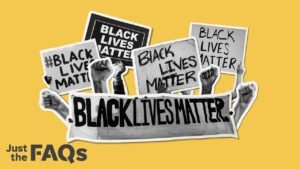
4. What Contributions Have African Americans Made to American Arts and Entertainment?
African Americans have been at the forefront of shaping American arts and entertainment, bringing forth a wealth of creativity and innovation. In music, African American artists have pioneered genres such as jazz, blues, gospel, rock ‘n’ roll, and hip-hop, each leaving an indelible mark on the global music scene. In literature, figures like James Baldwin and Maya Angelou have offered profound insights into the African American experience, influencing generations of readers and writers. The film industry has also been deeply impacted by African American directors and actors, whose stories and performances have broadened the scope of American cinema. Visual arts, dance, and theater have similarly benefited from African American ingenuity, making American culture more diverse and vibrant.
5. How Do Systemic Racism and Discrimination Affect African American Communities?
Systemic racism and discrimination permeate many facets of American society, creating barriers that disproportionately affect African American communities. In the workforce, African Americans often face discrimination in hiring, promotions, and wages, leading to economic disparities that compound over time. Housing discrimination, through practices such as redlining, has historically denied African Americans access to homeownership and the wealth accumulation that comes with it. Educational inequalities, often resulting from underfunded schools in predominantly African American neighborhoods, limit opportunities for upward mobility. Furthermore, systemic biases in the criminal justice system contribute to the over-policing and mass incarceration of African Americans, perpetuating cycles of poverty and social disadvantage.
6. What Role Has African American Activism Played in Shaping Civil Rights in America?
African American activism has been a driving force in the fight for civil rights and social justice in America. From the abolitionist movement to the Civil Rights Movement of the 1960s, African Americans have led efforts to challenge and dismantle institutionalized racism. Figures like Martin Luther King Jr., Malcolm X, and Rosa Parks are emblematic of the courage and determination that have defined African American activism. These movements have not only secured landmark legislation, such as the Civil Rights Act and the Voting Rights Act, but have also inspired ongoing struggles for equality in areas such as criminal justice reform, voting rights, and economic equity. The legacy of African American activism continues to resonate in contemporary social justice movements like Black Lives Matter.
7. How Does the African American Experience Differ Across Regions in the United States?
The African American experience varies significantly across different regions of the United States, shaped by local histories, cultures, and socioeconomic conditions. In the South, where the legacy of slavery and Jim Crow laws is most pronounced, African Americans have historically faced intense racial discrimination, but have also developed strong, vibrant communities with deep cultural traditions. In the North, the Great Migration brought many African Americans to urban centers, where they contributed to the cultural and political life of cities, but also encountered new forms of segregation and economic hardship. The West, with its diverse population and relative newness, offers a different set of experiences, where African Americans have navigated both opportunities and challenges in rapidly changing environments. Each region offers a unique lens through which to view the African American experience, highlighting the diversity and complexity of African American life in the United States.
8. What Are Some Examples of African American Achievements in Science and Technology?
African Americans have made remarkable contributions to science and technology, often in the face of significant adversity. Pioneers like George Washington Carver revolutionized agriculture with his work on crop rotation and sustainable farming practices. In medicine, Dr. Charles Drew’s research in blood storage and transfusion saved countless lives during World War II and beyond. The achievements of NASA mathematician Katherine Johnson, whose calculations were critical to the success of the U.S. space missions, highlight the essential role African Americans have played in advancing scientific knowledge. More recently, African American innovators in fields such as biotechnology, information technology, and engineering continue to push the boundaries of what is possible, contributing to advances that benefit all of society.
9. How Has African American Literature Shaped American Thought and Identity?
African American literature has profoundly shaped American thought and identity, offering unique perspectives on the human condition and the American experience. Writers such as Frederick Douglass, Zora Neale Hurston, and Ralph Ellison have used their works to explore themes of freedom, identity, and social justice, challenging readers to confront the realities of race in America. The Harlem Renaissance, a cultural and literary movement of the 1920s, brought African American literature to the forefront of American culture, influencing writers and thinkers across racial lines. In contemporary literature, authors like Toni Morrison and Ta-Nehisi Coates continue to explore the complexities of race, history, and identity, contributing to ongoing national conversations about who we are as a society. Through their powerful storytelling, African American writers have not only documented the African American experience but have also shaped the broader narrative of what it means to be American.
10. What Steps Are Being Taken to Address Racial Inequality in American Society?
Addressing racial inequality in American society requires a multifaceted approach that includes policy reform, education, and community engagement. At the policy level, efforts are being made to address systemic racism through initiatives such as criminal justice reform, affordable housing programs, and investments in education and healthcare for underserved communities. Organizations and advocacy groups continue to push for greater representation of African Americans in leadership positions across various sectors, from government to corporate boards. Educational programs aimed at increasing awareness and understanding of the historical roots of racial inequality are also essential in fostering a more inclusive society. Additionally, grassroots movements and community organizations play a crucial role in driving change, advocating for local solutions to the challenges faced by African American communities. While progress has been made, the work of achieving true racial equality is ongoing and requires the commitment of individuals and institutions alike.
FQAs:
1. How Has Hip-Hop Culture, Rooted in African American Communities, Shaped Global Music Trends?
Hip-hop, born from the streets of the Bronx in the late 1970s, has transcended its origins to become a global cultural phenomenon. What began as a creative outlet for marginalized African American youth has evolved into a multi-billion-dollar industry that influences music, fashion, language, and lifestyle worldwide. The genre’s rhythmic beats, lyrical dexterity, and cultural authenticity have resonated across continents, making hip-hop the voice of a generation seeking to express identity, resistance, and social change. Today, hip-hop artists from different countries incorporate local sounds and languages into their music, creating a vibrant global dialogue that remains rooted in the African American experience. This cultural exchange highlights hip-hop’s enduring power to connect diverse communities through shared narratives of struggle and triumph.
2. What Are Some Examples of African American Artists Influencing Modern Visual Arts?
African American artists have long been at the vanguard of innovation in visual arts, pushing boundaries and challenging societal norms. Contemporary artists like Kara Walker, known for her provocative silhouettes that confront the legacy of slavery, and Kehinde Wiley, famous for his vibrant portraits that reimagine classical European paintings with African American subjects, have profoundly impacted the art world. Their work not only redefines artistic expression but also sparks critical conversations about race, history, and identity. Jean-Michel Basquiat, whose neo-expressionist paintings combine graffiti and fine art, has inspired a new generation of artists to explore themes of power, oppression, and cultural heritage. These artists, among others, continue to influence modern visual arts by elevating African American narratives and aesthetics on a global stage.
3. How Has African American Literature, Like the Works of Toni Morrison, Impacted American Storytelling?
African American literature, deeply rooted in the oral traditions and historical experiences of African Americans, has profoundly shaped American storytelling. Toni Morrison, a Nobel laureate, revolutionized literature with her poignant exploration of African American life, history, and identity. Her novels, such as *Beloved* and *The Bluest Eye*, delve into the complexities of race, memory, and trauma, offering readers an intimate portrayal of the African American experience. Morrison’s work, along with that of other African American writers like James Baldwin and Zora Neale Hurston, has expanded the canon of American literature, ensuring that the voices and stories of African Americans are heard and respected. Their contributions have not only enriched the literary landscape but also challenged readers to confront uncomfortable truths about America’s past and present.
4. How Has African American Cuisine, Such as Soul Food, Influenced Mainstream American Dining?
African American cuisine, particularly soul food, has left an indelible mark on American dining. Rooted in the culinary traditions of the American South, soul food embodies the resilience and creativity of African American communities who transformed humble ingredients into flavorful, nourishing dishes. Staples like fried chicken, collard greens, cornbread, and macaroni and cheese have become iconic in American cuisine, celebrated for their rich flavors and comforting qualities. Over time, soul food has transcended its regional origins, influencing everything from fine dining to fast food. Chefs like Edna Lewis and Marcus Samuelsson have brought African American culinary traditions to a broader audience, showcasing the depth and diversity of soul food while honoring its cultural significance. As a result, soul food continues to shape and define the American culinary landscape.
5. What Impact Has African American Fashion, Like Streetwear, Had on Global Fashion Trends?
African American fashion, particularly streetwear, has revolutionized global fashion trends. Streetwear, which emerged from the urban centers of New York and Los Angeles in the 1980s and 1990s, draws inspiration from African American youth culture, hip-hop, and skateboarding. Brands like FUBU (For Us, By Us) and designers like Dapper Dan redefined fashion by blending high-end style with street aesthetics, making bold statements about identity, culture, and social status. Today, streetwear is a dominant force in the fashion industry, influencing luxury brands and everyday fashion alike. Designers such as Virgil Abloh and Kanye West have taken streetwear to the global stage, merging it with haute couture and challenging the boundaries between high fashion and street culture. This fusion of styles has made African American fashion a powerful symbol of creativity, innovation, and cultural influence worldwide.
6. How Has the African American Church Contributed to Social and Political Movements in the U.S.?
The African American church has been a cornerstone of social and political activism in the United States, serving as both a spiritual sanctuary and a platform for change. Historically, the church provided African Americans with a sense of community and resilience during times of oppression and segregation. It also played a crucial role in the Civil Rights Movement, with leaders like Martin Luther King Jr. emerging from the pulpit to lead the fight for justice and equality. The church organized boycotts, marches, and voter registration drives, mobilizing African American communities to demand their rights. Beyond the Civil Rights Movement, the church has continued to advocate for social justice, addressing issues such as police brutality, economic inequality, and mass incarceration. Its influence extends beyond the walls of the sanctuary, shaping national discourse and inspiring future generations of activists.
7. In What Ways Has African American Vernacular (AAVE) Influenced Mainstream American Language?
African American Vernacular English (AAVE), often referred to as Ebonics, has had a significant impact on mainstream American language. AAVE, with its unique grammatical structure, vocabulary, and pronunciation, originated from the linguistic traditions of African slaves and evolved over centuries in African American communities. Phrases and expressions from AAVE, such as “lit,” “bae,” “throw shade,” and “on fleek,” have been widely adopted in popular culture and everyday conversation. The influence of AAVE is particularly evident in music, especially in hip-hop and R&B, where its use has shaped lyrical styles and storytelling. Despite its widespread adoption, AAVE remains a critical marker of cultural identity for African Americans, reflecting the community’s history, creativity, and resistance to assimilation. Its influence on American language highlights the dynamic nature of linguistic exchange and cultural interaction.
8. How Has Jazz, Originally Developed by African Americans, Influenced Various Music Genres Today?
Jazz, a quintessentially American art form developed by African Americans in the early 20th century, has had a profound influence on a wide range of music genres. Originating from the fusion of African rhythms, blues, and ragtime, jazz introduced new levels of improvisation, syncopation, and complex harmonies to the world of music. Its impact can be seen in the development of genres such as rock, R&B, funk, and even electronic music. Artists like Miles Davis and John Coltrane pushed the boundaries of jazz, inspiring musicians across genres to experiment with new sounds and techniques. The improvisational nature of jazz has also influenced hip-hop, where artists often freestyle and collaborate in ways reminiscent of jazz jam sessions. Jazz’s legacy continues to shape the music industry, making it a foundational element of modern musical expression.
9. What Role Have African American Filmmakers Played in Diversifying Hollywood Storytelling?
African American filmmakers have played a pivotal role in diversifying Hollywood storytelling, bringing new perspectives and narratives to the forefront of cinema. Pioneers like Oscar Micheaux, who directed films during the early 20th century, challenged the stereotypical portrayals of African Americans in mainstream media. In recent decades, directors such as Spike Lee, Ava DuVernay, and Ryan Coogler have used their platforms to tell stories that reflect the complexities of African American life, history, and culture. Films like *Do the Right Thing*, *Selma*, and *Black Panther* not only entertain but also provoke critical discussions about race, identity, and social justice. By creating space for diverse voices in Hollywood, African American filmmakers have expanded the range of stories told on screen, challenging audiences to see the world through a different lens and pushing the industry towards greater inclusivity.
10. How Has the Civil Rights Movement Inspired Current Social Justice Movements Globally?
The Civil Rights Movement of the 1950s and 1960s, led by African American activists, has had a lasting impact on social justice movements around the world. The movement’s strategies of nonviolent protest, grassroots organizing, and legal challenges set a precedent for how oppressed groups can fight for their rights. Its success in dismantling segregation and advancing civil rights in the United States inspired other movements globally, from the anti-apartheid struggle in South Africa to the fight for indigenous rights in Australia and the Americas. In recent years, the legacy of the Civil Rights Movement can be seen in the Black Lives Matter movement, which continues the fight against systemic racism and police brutality. The principles and tactics of the Civil Rights Movement have become a blueprint for activism, demonstrating the power of collective action in achieving social change.
In conclusion, the impact of African Americans on American society cannot be understated. From the Civil Rights Movement to contributions in arts and culture, sports and athletics, demographic changes, education and intellectual achievements, health disparities and activism, business and entrepreneurship, religion and spirituality, political participation and leadership, and social and cultural impact, African Americans have played a crucial role in shaping America’s past, present, and future. The ongoing fight for equality and justice ensures that their legacy continues to inspire and drive positive change for generations to come.



